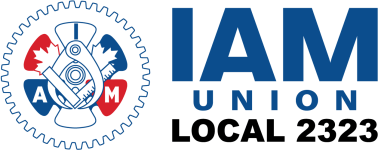
(Left to right: GVP Stan Pickthall, LL2323 VP Dan Janssen, DL140 GC Mike Corrado,
IAMAW Canada Airline Coordinator Carlos Dacosta)
7 November, 2018
IAM Canada was a part of a vigorous delegation that participated in the 2018 ITF Congress.
What follows is a summary of the main work programs that were approved by the delegates
in attendance for the next 5 years.
The 2400 delegates in attendance at this ITF Congress voted to support a new strategy
program and have set priorities for the Civil Aviation section of the ITF which covers workers
in air transportation around the world.
These can be broken down as follows:
- Growing and Activating Membership
- Organize key airport hubs and share good organizing methods
- Innovative Campaigning
- Challenge unfair competition from non-union airlines through union organizing and campaigning
- Global and Regional Policy
- Promote good regulation of global aviation through a stronger voice at the International
- Civil Aviation Organization (ICAO) meetings
- Women Transport Workers
- Strengthen and promote gender equality policies and support women’s leadership and organize
women workers at same time - Young Transport Workers
- Increase membership and build youth structures across all sectors around the world
1- Growing and Activating Membership:
The intention here is to organize in key airports around the world. In this day of globalization, we must
ensure all transportation workers are represented and protected from employers that do not wish to
compensate them properly and protect them from unsafe working conditions.
Much work continues in Asian countries where there is tremendous growth. Many areas remain
non-unionized and it is very important to continue this mandate so that all transport workers around
the world may benefit from these initiatives.
2- Innovative Campaigning:
The ITF through support from all unionized workers at international airports will challenge unfair
competition from non-union airlines through union organizing and campaigns that challenge unfair
subsidies. There are many lessons learned that must be shared in order to be successful.
3- Global and regional Policy:
The ITF will continue to promote strong regulations in global aviation through a stronger voice at the
International Civil Aviation Organization (ICAO) to protect national regulations, resist social dumping
and Flags of Convenience (FOC) and promote training for young aviation workers.
The ITF will continue developing a stronger relationship with ICAO and at the International Labour
Organization (ILO). They will also ensure a presence at ICAO assemblies and continue to be involved
with ICAO sub-groups. Please visit ICAO website for further information on these sub-groups and what
their mandate is.
Recently, the ITF has opened an office at the ICAO headquarters in Montreal in order to further lobby
government appointed officials whose mandate affects workers in the transportation industry. Several
meetings have taken place at this new office to start building the lobbying strategy and the IAM was there
to support the ITF and to lobby the appointed Canadian delegation from the Government of Canada and
Transport Canada.
Finally on Flags of Convenience (FOC), we have many lessons to learn from the maritime sector, where
the registration of ships in foreign countries with little to no legislation or protection of workers, has had
a tremendous impact on those workers. We must learn and prevent Flags of Convenience concept from
being adopted by airlines world.
4- Women Transport Workers:
The ITF will continue to strengthen and promote gender equality and will continue to promote women to
enter leadership roles through organizing and training. Further, we must support and expand on “violence
against women” campaigns to include new regions and target employers in violation.
Another goal for the ITF will be to achieve an ILO convention on violence in the workplace to bring together
women from around the world to discuss and create a plan on how to improve conditions for women around
the world. Targeting employers and government bodies to reduce gender based segregation in the workplace
will also be on the ITFS list of things to accomplish in the next 5 years.
5- Young Transport Workers:
Clearly much work is needed to prepare our youth as they enter leadership roles within unions and locally in
various groups. As baby boomers retire and leave the workplace in mass numbers, we must all ensure we
have our younger future leaders prepared and trained to take over our mandate to protect workers. This will
be accomplished first by building structures across our work sectors and delivering training and discussing
work priorities that need to continue.
The ITF along with all unions around the world must protect and empower young workers affected by
technological change by harnessing new technology and developing innovative responses.
All of this must be coordinated with other labour friendly international groups so that we have a coordinated
organizing strategy and campaign platform to address technological change and unemployment challenges.
Finally, every project and mandate that has been approved by the delegation at the 2018 Congress, is in line
to further enhance worker protection regardless of which country you live in. Globalization is a big threat to
all workers and together as an international group of unionists we must stand together and work as a team to
curb corporate and government advances that are detrimental to all workers regardless of which sector you
work in.
The IAM can proudly say that they have stepped up to the plate and continue to support the ITF, and continue
to attend their meetings in order to achieve global solidarity!
Carlos Dacosta-
IAM Transportation Coordinator




